Waiting for Elections in 2013: 11 Theses (with Appropriate Apologies) on Zimbabwe’s Moment of Magical Realism “” By David Moore

Ever since Zimbabwe’s Transitional Inclusive Government’s (TIG) constitution was finally agreed in the middle of March, the country’s political discourse had been in overdrive. Primarily it has been debating the date of the election that could end two eras – the first being the tension-ridden TIG, in existence since February 2009, and the second being the possibility of end to Robert Mugabe and his party’s rule over Zimbabwe.
Just about 90 days later, the suspense of that moment looked like it was over – bar a surprise or two from the ruling party (and it is quite good at surprises). A once-deferred special SADC meeting in Maputo announced that August 14 would be the best date for such an earth-shaking event. To be sure, this depended on the ZANU-PF Justice Minster approaching the constitutional court to rethink its ruling granting a ZANU-PF-sponsored man his “˜right’ to a July 29 election. All sorts of legal shenanigans could ensue, but on the 15th June all except sixty-six ZANU-PF folks enjoying Maputo’s seaside for the weekend were pleased. Even the sixty-seventh ZANU-PF delegate, Robert Mugabe, said this was a happy outcome.
Democracy could get kick-started again: elections are meant to do that; the excitement and adrenaline therein aroused is a good part of their legitimating effect. “˜Governments of national unity’ don’t quite pull it off.
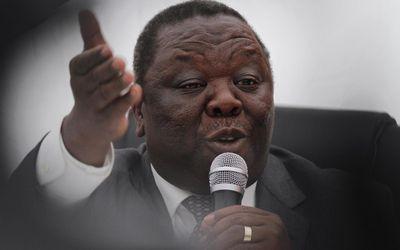 The few weeks between mid-March, when everybody seemed so happy that so many people had voted, contrary to much evidence, (the numbers only seemed high because they only reflected registered voters, but registration was not needed for the referendum and the results of the 2012 census were not in, thus making it impossible to justify a count of more than 46% turnout), and favourably, so any delay to the next rush – the election – seemed an eternity. ZANU-PF especially had been announcing an election or two every few months since 2010. Waiting for an election date seemed like Waiting for Godot, and during purgatory people don’t want to believe that what is down the road might be anti-climactic: the pitch is high.
The few weeks between mid-March, when everybody seemed so happy that so many people had voted, contrary to much evidence, (the numbers only seemed high because they only reflected registered voters, but registration was not needed for the referendum and the results of the 2012 census were not in, thus making it impossible to justify a count of more than 46% turnout), and favourably, so any delay to the next rush – the election – seemed an eternity. ZANU-PF especially had been announcing an election or two every few months since 2010. Waiting for an election date seemed like Waiting for Godot, and during purgatory people don’t want to believe that what is down the road might be anti-climactic: the pitch is high.
It struck this similarly intoxicated observer that (Thesis I) this “˜moment’ could mark the closure of a lengthy conjuncture and the beginning of a new era. This might be the end of an interregnum, consisting of a compromised pact mediating the end of an era of one party’s near monopoly of political power and access to state-assisted means of accumulation, and the beginning of a another epoch wherein there would be slightly more variegated access to the tools of governance.
If real, free and fair elections could come to pass it was possible that a form of “˜democracy-lite’ might be on the way, instead a continuation of what Phillan Zamchiya calls (slightly) “˜competitive electoral authoritarianism‘. And that, given Zimbabwe’s history of violent and stolen elections, could be akin to a revolution as far-reaching as that about land. Such a momentous historical occurrence could bear analysis-paying homage to the epigrammatic notations of one of social science’s more notable founding fathers. One could construct a number of theses that could capture the essence of Zimbabwean politics as it teetered on the edge of a new precipice – as it had, one hastens to add, many times before since the prospect of the ruling party’s electoral defeat in 2000.
Coincidentally, a review by one of the more prolific of the many scholars describing what they see to be the success of Zimbabwe’s agrarian revolution (no scare quotes needed: any radical alteration of a country’s rural socio-economic structure is revolutionary regardless of its success or if it is generally liked) misnamed the author of a magical realist book from which Rory Pilossof’s The Unbearable Whiteness of Being borrowed its title. In their book on land reform, the same author and his team did not remember when the Movement for Democratic Change was formed: it was on a 9/11 two years after they thought, two years before the one in New York, and 26 years after the same date in Chile, when Salvador Allende met his untimely fate.
Thus: thesis II and III on the Zimbabwean Interregnum (March 16-June 15 2013). First: one may, with care, utilise the insights of magical realism to assess the political discourse of the moment (and possibly much more). If Doctorow is right and magical realism expresses the “˜exhaustion of meaningful choice’ (we all know deep down that ZANU-PF will not allow a loss of power – this is the seventh, but probably most important, thesis ) and most seasoned Zimbabwean political actors talk as if their lives are “˜so lacking in commitment or fidelity or moral responsibility … as to be unattached to the real earth‘, what better mode of analysis could be found?
Second: it will take a long time and an epistemological shift for the twain between the agrarian patriot-scholars who spend their time adding up the pluses of their revolution and the political scientists who pass their hours minding the electoral processes and juridical freedoms to meet (although young scholars such as the aforementioned Zamchiya, who has done excellent work on land and politics per se suggest the change may be beginning)”Ž: but now is not that time, and the import of this moment will be analysed mostly in political terms in this instance. For all intents and purposes thesis II will remain aside; but reluctantly so.
Arising out of thesis I is thesis IV: Zimbabwean politicians are not averse to hyperbole. “Historic, amazing and dramatic” is what Tendai Biti, MDC Secretary-General and the Transitional Inclusive Government’s (TIG) Minister of Finance, proclaimed on the Maputo result. But really: what difference will two weeks make for media freedom, decent voters’ rolls, an electoral commission not stripped of its military minions, and most of all, security reform? Could Biti really have meant what he said? As one more sober-minded MDC activist put it, “the decision by SADC is just diplomatic stance to nurse the MDC wounds and massage their ego. It endorses the decision by the Mugabe Courts: the extension depends on how ZANU PF sees what is strategic. There is no difference between 31 July and 14 August. All this is a decoy by ZANU PF and Mugabe.”
Of course, the most famed for linguistic acrobatics, poisoned at that, is Professor Jonathan Moyo, who may go down in history as Zimbabwe’s Goebbels. The most recent and consistent recipient of his vitriolic rhetoric has been South Africa, at least since Lindiwe Zulu, a more enthusiastic democrat than those on the Thabo Mbeki team, took over as leader of the SADC/SA facilitation team.
Relatedly, thesis V argues that Sabelo Ndlovu-Gatsheni may be partially correct to assert that “˜Mugabeism’ is a specific ideology. It may not have a defined philosophical frame – Mugabe is more of an opportunist than an ideologist, as one of Britain’s spies who, during the liberation struggle helped Blair’s nemesis a lot, was fond of repeating. Perhaps, however, it is a clearly distinguished rhetorical style: read the ponderous pontifications of Mahoso, Charamba, and many young pretenders, to see.
Nevertheless, it is, as Ndlovu-Gatsheni says in his Do “˜Zimbabweans’ Exist? Trajectories of Nationalism, National Identity Formation and Crisis in a Postcolonial State, “˜an inherent product of [the] “schizophrenic” nature of the postcolonial state’ in its Zimbabwean guise (see also Moore in Hany Beseda’s edited Zimbabwe: Picking up the Pieces). Literary/ideological manifestations of chemical-sociological imbalances in the collective political brain lead to magical realism – and they can have brutal material effect.
Returning to South Africa’s place in Zimbabwe’s discursive directions, thesis VI contends that as the reluctant regional hegemon and “˜the west’ moved closer regarding democracy in the hinterland (and Blair has left politics for consulting), Africa’s economic powerhouse has taken up the role of “˜most hated Zimbabwean enemy’. The South African team has been shunned openly as they trooped up to Zimbabwe (Mbeki, too, was sometimes left cooling his heels for hours on end as he importuned his northern elder, but that was never publicised).
President Zuma, however, may have reversed the trend by appearing to pull off a masterful diplomatic coup at Maputo whilst actually letting ZANU-PF off the hook. Getting Zimbabwe on track seems an easier foreign policy trick than has been pulled in the Central African Republic and over “˜Zuptagate’, in which a wealthy Indian family, reputedly getting wealthier through its friendship with many Zumas, gained access to a military airport on the way to a wedding in a tacky casino.
Remarkably, the dangling carrot of loaning over $100 million to run the election (the UNDP, no longer at ZANU-PF’s beck and call, insisted on following its rules about clean elections before loosening its largesse, so was not invited), was not discussed and seems to have been taken off the SADC agenda. What could have been Tendai Biti’s gamble of taking the March 9 promise of financial support, hidden in a SADC memo, to the South African public to ensure it would be used conditionally, may have failed?
As in magical realism’s tropes, nothing is what it seems – except Mugabe’s happiness. One is led to wonder if two ingratiating “˜documentaries’ of the Mugabe family, hosted by the Oliver Tambo’s son and aired recently by South Africa’s national television broadcaster were approved by the ANC in a bid to restore an aura of saintliness to an obviously aged – the president appeared to fall asleep as Dali Tambo’s last questions rolled on – historical throwback.
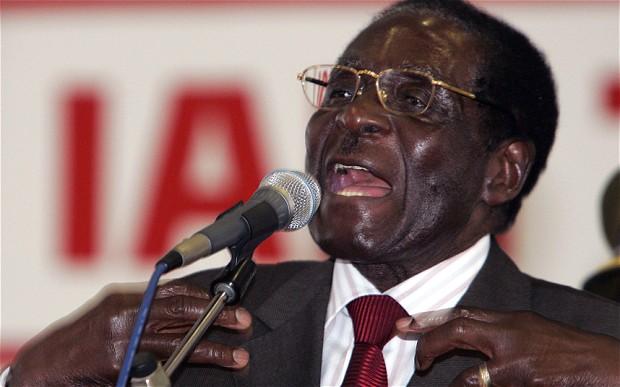 No matter age or drowsiness, reports are that during cabinet meetings the president outwits them all. As long as he does so, thesis VII reigns: it is extremely unlikely Robert Mugabe and his assorted colleagues will willingly give up power through elections alone. The depletion of real alternatives of which Doctorow spoke derives from this point. As Brian Raftopoulos put it at a recent meeting at the University of Cape Town regarding Zimbabwe’s readiness for elections, Zimbabwe’s “˜military-economic élite – a new capitalist class at an early stage’ – will not be removed “˜just with elections’, so some sort of “˜partnership to prevent militaristic moves’ is needed.
No matter age or drowsiness, reports are that during cabinet meetings the president outwits them all. As long as he does so, thesis VII reigns: it is extremely unlikely Robert Mugabe and his assorted colleagues will willingly give up power through elections alone. The depletion of real alternatives of which Doctorow spoke derives from this point. As Brian Raftopoulos put it at a recent meeting at the University of Cape Town regarding Zimbabwe’s readiness for elections, Zimbabwe’s “˜military-economic élite – a new capitalist class at an early stage’ – will not be removed “˜just with elections’, so some sort of “˜partnership to prevent militaristic moves’ is needed.
At the same meeting a ZANU-PF representative appeared in place of the advertised Professor Moyo. The poor clone’s declarations that his party – the “˜truest democrats ever’ – would not waver from a June 29 election date exemplified an extreme manifestation of magical realism to guffaws and boos from an audience fully aware of his fidelity and commitment: thus leading to hopes that thesis VIII – many Zimbabweans are not taken in by the ersatz brand of magical realism coming out of ZANU-PF – will bear fruit.
However, the conflict in ZANU-PF primaries seems to be explosive, this being one reason aside from Mugabe’s failing health for elections to make haste: nothing unites the party like an electoral contest. If the factions are debilitating, thesis IX, that ápres Mugabe, la deluge pour la partie, would be proved wrong. Ever since Mugabe rose to the top in the aftermath of the 1975 Chitepo assassination and the squelching of the Zipa and Hamadiziripi-Gumbo challenges in 1977 and 1978, it has been assumed that no one but he can hold the party together. This belief has led to an inability to groom a successor: so far it has worked, but its threads are getting barer by the minute.
In the meantime the question is: how will the ruling party win again? Thesis X.a proclaims along with the Crisis Coalition perspective (see Zamchiya references above) that the mid-2008 presidential election, in which the violence had been matched only by Gukurahundi, will not be repeated – neither local nor regional legitimacy would allow that, although it will be meted in relatively small doses (and the young militias and chipanganos are not that easily controlled) and many slick efforts will be made before and after the ballot to channel the results down the correct stream.
Recent polls have indicated MDC slippage – being in TIG, getting caught up in municipal corruption, and its leader’s well-exposed private life have not helped. The election could be close to a tie, although when push comes to shove in the polling booths nearly three and a half decades of disappointment may turn that pen away from history. Thus one must consider Raftopoulos’ notion of a “˜partnership’ carefully.
Thesis X.b thus wonders about a TIGII. As pundits considered Zimbabwe’s political future at 2013’s beginnings, one careful observer suggested a “˜militarised’ democracy: no wonder there was screaming in the police commissioner’s office, and arrests, when the Zimbabwe Independent reported meetings between the MDC shadow defence minister and top security force members. Rumours abound of “˜moderates’ within ZANU-PF and various players in the MDC making a deal. The MDC may be worried enough about lost support to attract it to this path, and perhaps some elements of ZANU-PF would seek alliances outside their traditional bounds.
However, the promise of power through elections is beguiling (another element of magical realism). There is no real alternative to elections – unless extreme violence forces SADC to call for a TIG II (an option undoubtedly appealing to some). Yet deals may be conceived beforehand and delivered very quickly afterwards: all parties could agree to fudge the elections. ZANU-PF is not known for keeping promises, though: this adds another layer of make-believe to the realism. Even with a free and fair contest, the result will be close so premonitions and preparations for a coalition government after the fact must be on many tables. Tsvangirai has admitted to a generous coalition on the cards – after his 65% victory.
Another “˜unity’ could conjoin all the opposition parties: a jointly signed declaration that all the major opposition parties would oppose the July 31 election date raised faint hopes of unity among the two MDCs, Zapu and Simba Makoni’s Mavambo/Kusile/Dawn. This is, however, unlikely: Welshman Ncube did not attend the meeting but sent his deputy. Thus popular perceptions of them all – and Arthur Mutambara – as being little more than ZANU-PF’s or the regional hegemon’s pawns will continue, although they may gather enough votes to keep the main MDC from gathering a large majority. The best option of all will undoubtedly never happen. It does not merit even a third of a thesis.
Thesis Eleven is the worst. Zimbabweans may well see elections bringing nothing but fear, cynicism and violence, and start to treat them with contempt. Not a few of the many members of the youth tortured a decade ago by ZANU-PF for helping the MDC are now dissatisfied at current prospects. Hedging their bets for the next decade, they see a continuation of something much less than democracy-lite for the medium term future.
Some are starting to say the only hope for real change will be with a radicalised middle level of the armed forces. This is far from democracy: especially when one contemplates the reality of a military that will soon be made up of graduates of Border Gezi “˜National Service’ schools that make Terry Ranger’s notion of “˜patriotic history’ classes look anodyne indeed.
Those of an older generation in the region who in the past few years have held back at the abyss of full electoral democracy (at every stolen election since 2000) and abided by its fudged version have this to look forward too. This moment may indeed be on the cusp of a conjuncture that will be morbid indeed.
David Moore is Professor of Development Studies at the University of Johannesburg. He is currently a Visiting Scholar at the University of Cape Town’s Centre for African Studies.


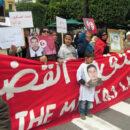
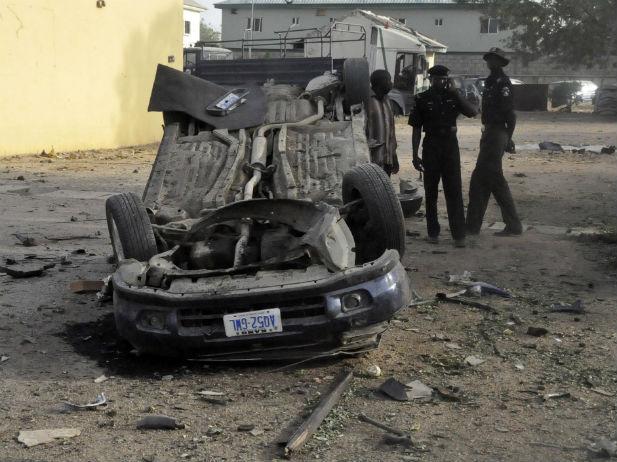
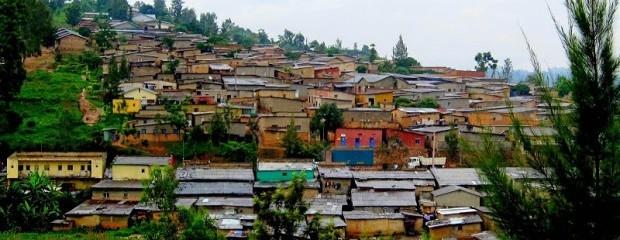


cialis generic generic cialis
cialis alternative buy cialis usa
cialis generic buy cialis usa